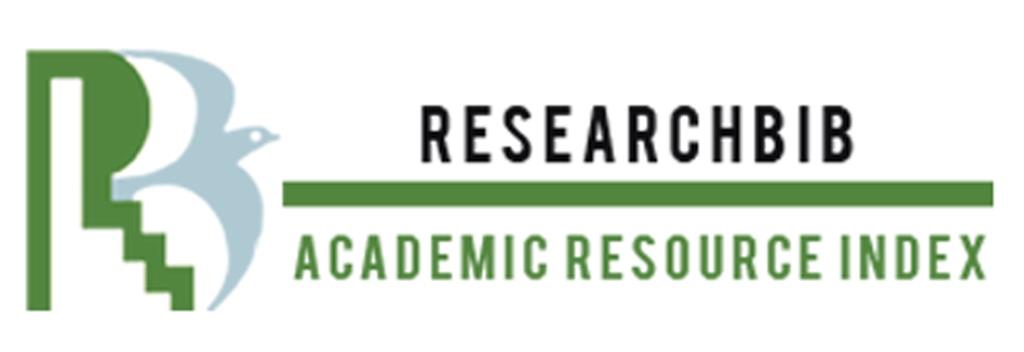DIRECTIONS FOR IMPROVING URBAN LAND MONITORING AND ASSESSMENT BASED ON MODERN TECHNOLOGIES
Abstrakti
Sustainable urban land management has become a pressing issue in Uzbekistan. This study examines the organizational pathways needed to transform urban land use in Uzbekistan. It is based on a study of the theoretical foundations of urban land use. It analyzes current issues within the framework of the urban land management system in Uzbekistan. The study identifies mechanisms for determining land values and taxation, as well as subsidies for practices, as important tools for promoting efficient and equitable land use. It also highlights the need for organizational reforms, including decentralization, participatory planning, and improved land tenure security, to create responsive and flexible governance structures. The study concludes with a set of practical recommendations tailored to the specific circumstances of Uzbekistan and provides a roadmap for policymakers to achieve sustainable urban development. Environmental protection issues are highlighted, as well as recommendations for integrating green infrastructure and public transport into urban planning. By implementing these strategies, Uzbekistan can ensure that its urban growth is not only economically beneficial, but also environmentally sound and socially inclusive.
Lataukset
Lähdeviitteet
Carr, Margaret H; Zwick, P. (2005). Using GIS suitability analysis to identify potential future land use conflicts in North Central Florida. Journal of Conservation Planning, 1, 58–73. Retrieved from http://www.journalconsplanning.org/2005/volume1/issue1/carr/manuscript.pdf
Lynch, K. (1960). The image of the city (Publication of the Joint Center for Urban Studies). Cambridge, Mass.: MIT Press.
Beatley, T., & Manning, K. (1997). The Ecology of Place: Planning for Environment, Economy, and Community.
Elmqvist, T., Gatzweiler, F., Lindgren, E., & Liu, J. (2019). Resilience Management for Healthy Cities in a Changing Climate. In Biodiversity and Health in the Face of Climate Change (pp. 411–424). Springer International Publishing. https://doi.org/10.1007/978-3-030-02318-8_18
Coase, RH (1960), The Problem of Social Cost, in idem, (1988), The Firm, the Market and the Law, Chicago: University of Chicago Press.
Ostrom E. (1990), Governing the Commons: The Evolution of Institutions for Collective Action, Cambridge University Press
Naughton-Treves, L. & Sanderson, S. (1995) Property, politics and wildlife conservation. World Development 23(8): 1265–1275.
Gasparatos A, Romeu-Dalmau C, von Maltitz G, Graham A, Almagro-Garcia J, Wilebore B, Willis KJ (2016) Impacts of land use change due to biofuel crops on climate regulation services: five case studies in Malawi, Mozambique and Swaziland. Biomass Bioenergy. https://doi.org/10.1016/j.biombioe.2016.05.011
Healey P. (1999). Collaborative Planning: Shaping Places in Fragmented Societies. (pp. 17-43). New York, NY: RCSP Press DOI: 10.3828/tpr.70.1.v5731844324h551
Albrechts, L. (2006a). "Shifts in strategic spatial planning? Some evidence from Europe and Australia." Environment and Planning A 38(6): 1149-1170.
Albrechts, L. (2006b). "Bridge the Gap: From Spatial Planning to Strategic Projects". European Planning Studies 14(10): 1487 - 1500.
Albrechts, L., Alden, J. and Da Rosa Pires, A. (eds) (2010). The Changing Institutional Landscape of Planning
World Bank (2007): Land Policy Dialogues: Addressing Urban‐Rural Synergies in World Bank Facilitated Dialogues in the Last Decade. Final Report, June 27, World Bank, Washington, DC
Rabinovitch, J. (1996). Innovative land use and public transport policy: The case of Curitiba, Brazil. Land Use Policy, 13 (1), 51–67. https://doi.org/10.1016/0264-8377(95)00023-2
Aw-Hassan, A., Korol, V., Nishanov, N., Djanibekov, U., Dubovyk, O., & Mirzabaev, A. (2015). Economics of land degradation and improvement in Uzbekistan. In Economics of Land Degradation and Improvement - A Global Assessment for Sustainable Development (pp. 651–682). Springer International Publishing. https://doi.org/10.1007/978-3-319-19168-3_21
Djanibekov, U., Van Assche, K., Boezeman, D., Villamor, GB, & Djanibekov, N. (2018). A coevolutionary perspective on the adoption of sustainable land use practices: The case of afforestation on degraded croplands in Uzbekistan. Journal of Rural Studies, 59 , 1–9. https://doi.org/10.1016/j.jrurstud.2018.01.007
Avezbaev S., Avezbaev OS Geodatabase and architecture. - Tashkent: "Economy-finance", 2016.- 214 p.
Abdurakhmonov, S., Khamidova, M., Romanyuk, Y., Karimov, E., Bozorov, M. Conventional and current approaches of urban mapping and geodetic base formulation for establishing demographic processes database:(https://www.scopus. com/authid/detail.uri?authorId=57218421242)
Avezbaev S., Volkov SN Landscaping design. - Tashkent: "Generation of the New Age", 2004. - 784 p.
Avezbaev S. Automated systems in land construction design. - Tashkent: TIMI, 2010.
Turaev RA Land monitoring // Study guide. Tashkent. 2022. 161 B.
AN Inamov, modularization of the automated system of formation of the land account in the database based on GAT programs (ArcGIS) (in the example of Jizzakh region) Tashkent - 2021. dissertation.
Shokirov Sh. S., Musaev IM, Akbarov MS Remote sensing. Tashkent. "Economy-finance", 2015. 192 p.
















